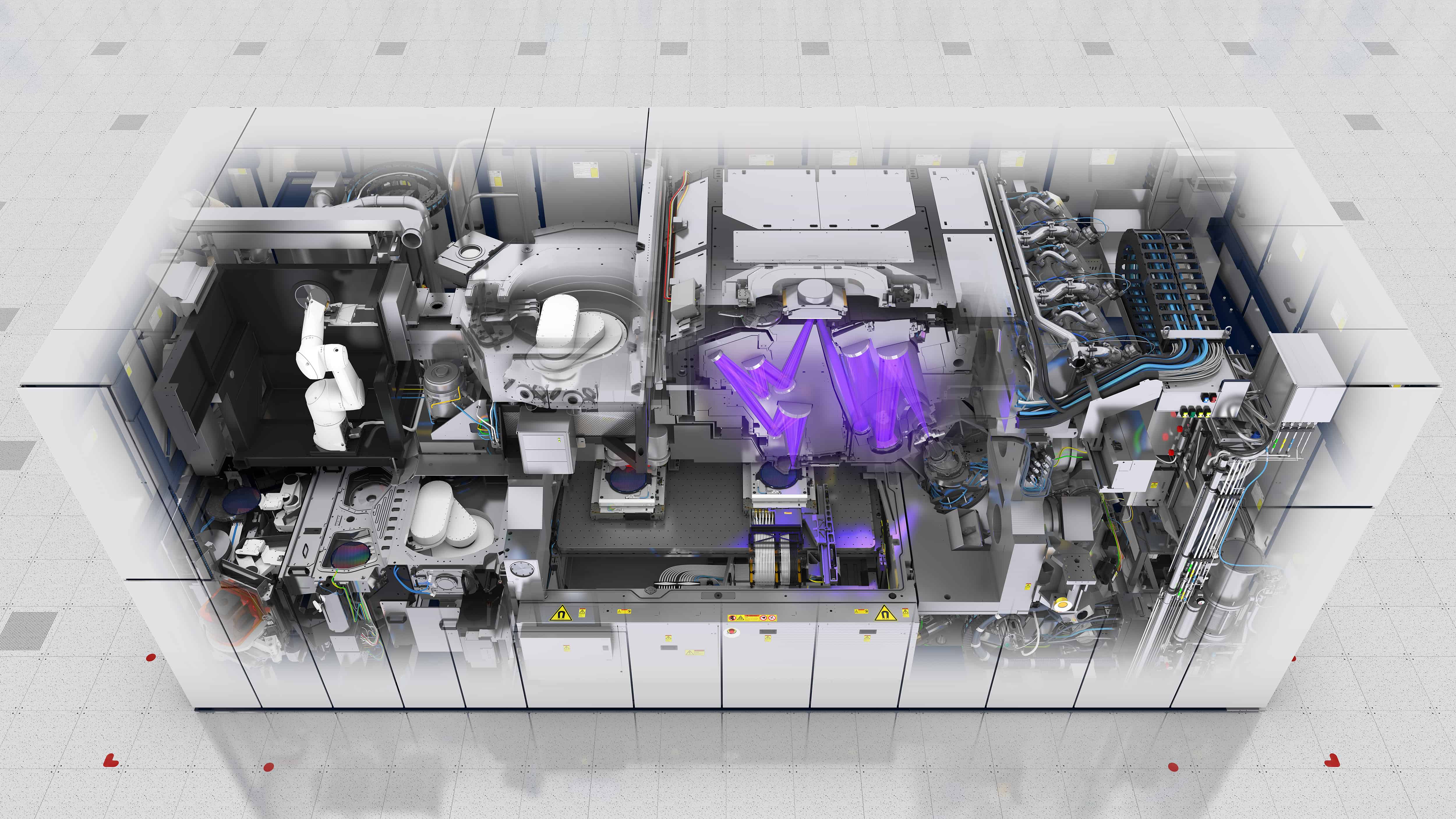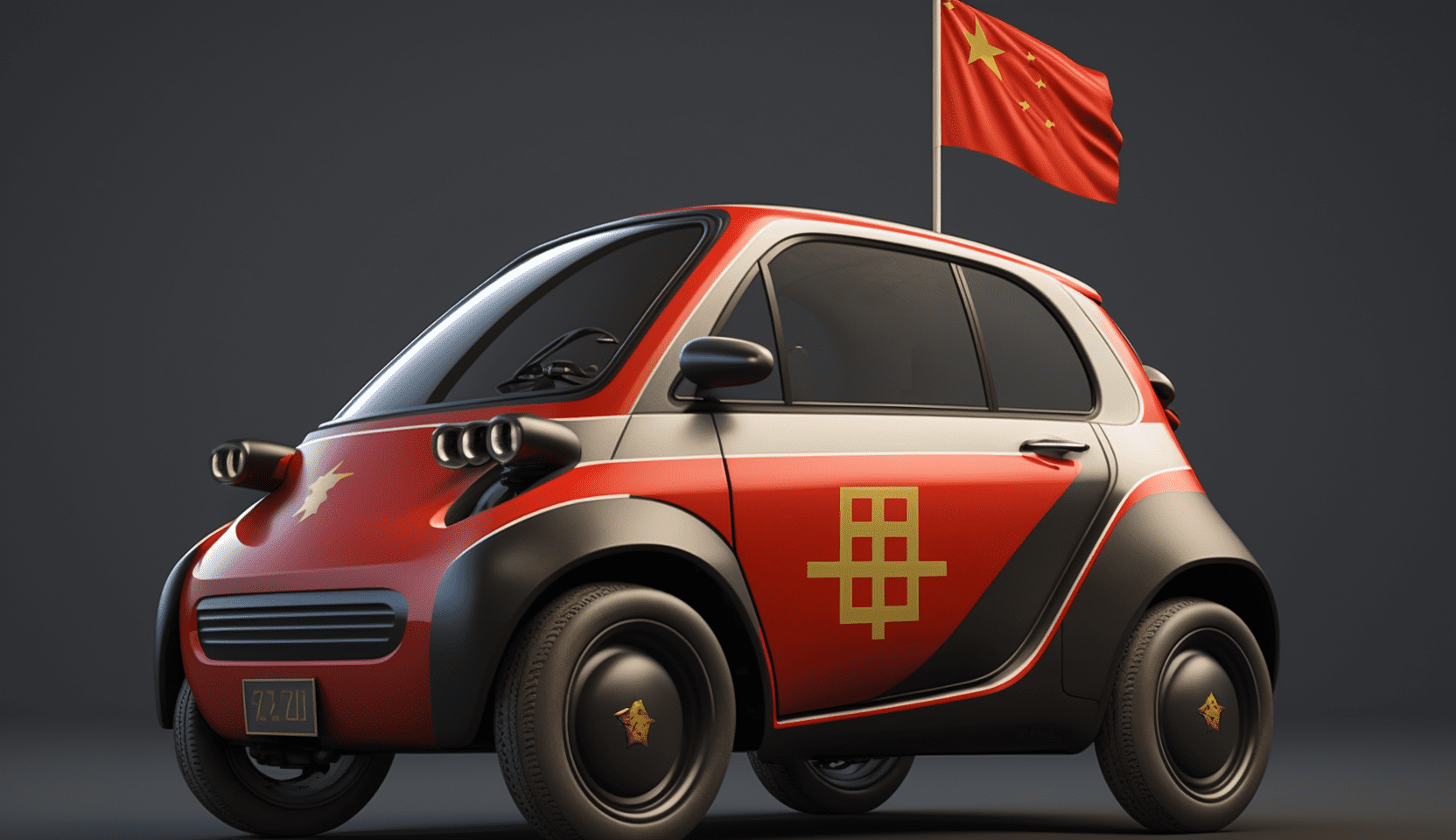
Last month, the US again announced export restrictions; two more of ASML’s older DUV models were blacklisted. First, the US only had control over machines that consisted of at least 25 percent American technology; for ASML (and two Japanese companies), that limit has now been reduced to 0 percent. Thus, the Veldhoven-based chip machine company grew to become where America and China fight out who has the most hair on its teeth.
- ASML faces increased US export restrictions, with older models now blacklisted, and the limit on American technology in its machines reduced to 0%;
- This has raised concerns about the sovereignty of the Netherlands in determining chip machine exports;
- The Anti-Coercion Instrument (ACI), set to come into force in the EU, was designed to counter economic coercion. However, there is a debate over whether it is applicable to ASML’s case;
- Geopolitical power struggles are increasingly manifesting through economic restrictions, and there is division within the EU on how to address such cases.
In 2018, under pressure from the US government, the Dutch government stopped exporting ASML’s most advanced EUV machines to China. “Part of that agreement was also that the export of the older DUV machines to China does not need to be limited. Simply because you can’t make the most advanced chips with those machines,” says Sanne van der Lugt, China expert for the LeidenAsiaCentre and former head of policy of the Dutch political party Volt. American companies are allowed to continue selling advanced chip technology.
This is an article from IO Next: The Year Of… For the last magazine of this year, we selected the articles that stuck with us the most, whether it was an impressive interview, an important story or just something funny.

Why Aafke selected this story for the magazine:
Last year, we wrote extensively about the export restrictions ASML faced. For this article, I interviewed three experts to gain insight into a new tool being implemented in the EU to counter third-country coercion. This story goes beyond technology; it reflects a larger societal discussion. The geopolitical power struggle is increasingly being played out through economic restrictions, with companies playing a crucial role. The big question is where the responsibility lies.
The latest US export measures are stricter than the measures in The Hague. “It is a trade restriction, and so it’s an EU mandate,” says Van der Lugt. Volt party leader Laurens Dassen tried twice to convince the Dutch House of Representatives to take the issue to a European level. Late October, Dassen filed a motion to “invoke the anti-coercive instrument in Brussels because of US export-restricting measures for ASML.”
This instrument – the Anti-Coercion Instrument (ACI) – was created to respond to economic coercion so that the EU can better defend its interests and those of its member states on the world stage. Twenty days after it is published in “the Official Journal of the EU,” the instrument enters into force. That publication could happen at any time. The ACI has three functions:
– Discouraging economic coercion
– Facilitating talks with the country in question to stop coercive measures.
– Providing a range of countermeasures, including imposing tariffs.
Countries vs. companies
The big question is: Is the ACI applicable or not to the case of ASML – and the Netherlands? The motion filed by Volt in October was defeated. The Dutch Minister of Foreign Trade and Development Cooperation Liesje Schreinemacher also believes the instrument is invalid in the case of ASML. In her view, it does not involve economic coercion against an EU member state, and the restrictions are not directed against the Netherlands.
Frans-Paul van der Putten, China and geopolitics analyst, finds Schreinemacher’s argument inappropriate. The sovereignty of the Netherlands is affected in this case. It is up to the government to decide which chip machines are exported and which aren’t. Right now, the US determines that. If the ACI doesn’t apply to this case, we have to change it and make sure that it does.”
Besides that, the ACI aims for de-escalation. Van der Lugt: “Ignoring the American trade barrier is potentially much more harmful than taking action. If we continue to tolerate this, we run the risk that other countries see the Netherlands as an unreliable trading partner.”



Sanne van der Lugt
Van der Lugt has a PhD in International Business and worked as a China researcher for Clingendael and the LeidenAsiaCentre. Until the end of August, she was senior policy officer at Volt’s parliamentary group where she was in charge of the Foreign Affairs, European Affairs, Defence and Foreign Trade files.
Frans-Paul van der Putten
Dr Frans-Paul van der Putten is a Netherlands-based independent researcher and consultant on China and geopolitics. He has non-employee affiliations with the Clingendael Institute (as a senior research Associate) and LeidenAsiaCentre (as a Researcher).
Tobias Gehrke
Tobias Gehrke is a senior policy fellow at the European Council on Foreign Relations, based in the Berlin office. He covers geoeconomics, focusing on economic security, European economic strategy, and great power competition in the global economy. Before joining ECFR, Gehrke was a research fellow with the Egmont Royal Institute in Brussels.
Origin of the ACI: Iran and China
Tobias Gehrke, senior policy fellow at the European Council on Foreign Relations in Berlin, explains that the idea for an instrument that would allow the EU to act as a front in the event of economic restrictions first emerged in 2018. “Trump then threatened sanctions on all European companies trading with Iran.”
In 2022, Europe again faced economic reprimands. Lithuania built increasingly strong ties with Taiwan, which has a complex relationship with China. The installation of an unofficial embassy in Lithuania named “Taiwan Representative Office” –other European countries avoid using “Taiwan” in the title of the unofficial embassies and instead use “Taipei” – was the straw that broke the camel’s back. China boycotted Lithuanian products, and Beijing allegedly asked EU multinationals to cut out Lithuanian companies out of their supply chain.
“The EU doesn’t want other powers to put pressure on its individual member states,” Van der Putten says. “The ACI was rigged to prevent something like this from happening again. It can be used if a third country uses economic coercion to force an EU member state to do something or prevent it from doing something, thus limiting sovereignty. As a country alone, you don’t stand strong against a country like China. As Europe, you do; possible costs of trade restrictions run much higher for a third country.”

Companies bear the brunt of geopolitical power play
Van der Putten observes that the geopolitical power play has increasingly been played through economic restrictions in recent years. “A few decades ago, it didn’t matter much where a headquarters was located and what a company’s legal nationality was. Now, companies’ nationality is significant because countries use economics to fight geopolitical power struggles. So companies can bear the brunt of that and need protection.”
There is division over what role the European Union should play in such cases. Gehrke: “Last year, the Netherlands called for a European debate on ASML and the export restrictions in Berlin and Paris. But other member states are not waiting for this at all. A country like France, for example, takes an apparent position: exports must remain a national matter.” He does see that an increasingly solid European narrative is slowly emerging around ASML because the Netherlands is speaking more and more openly about it.
He does not see the ACI being used to stop U.S. export restrictions soon. Firstly, the matter needs more urgency at the European level. “The export restrictions on ASML may be a big story in the Netherlands, but not in the rest of Europe. Moreover, the U.S. is an ally that is too important to take measures like this.”
‘Keep working hard to make ASML a European business’
The danger now is that the anti-coercive instrument will lose influence before it is officially installed. To avoid this, Gehrke expects the instrument to be used in a less extensive case in the coming years to show that the EU is willing to use it.
Van der Lugt sees the tightened export restrictions as the time to deploy the ACI. “This is the moment to draw a line and show: up to here and no further. Especially to protect the credibility of the Netherlands and the EU as a trading partner. If the EU acts as a front now, we strengthen our strategic position.”
If it were up to Van der Putten, the Netherlands should continue working hard to make ASML a European business. “For too long, the Netherlands has tried to protect the Veldhoven-based chip machine manufacturer on its own. If we want to protect Dutch companies from geopolitical pressure, in the long run, we will have to surrender influence anyway. And we can do that better on the European than the American side.”


